Last-Minute NYC Holiday Gift Guide 🎁
We’ve created a holiday gift guide with presents for the intrepid New Yorker that should arrive just in time—

At Untapped Cities, we love finding people that have quirky urban hobbies. Like these guys trying to break the Guinness World Record for subway riding. Or Matt Green’s project to walk all the streets of New York City. The urban nerd in us were intrigued by Moses Gates’ quest to visit every Census tract in New York City. In a piece for Narratively, he revealed some wonderfully “Untapped” locations and mentioned he had never been to Bronx Census Tract 001, Rikers Island. Oddly enough, we’ve been there, so we reached out.
For our exploration day together, Moses recommended that we explore New York City’s largest census tract, Co-Op City in the Bronx, which is home to approximately 26,000 people. It’s also a growing tract that increased 7.6% in population between 2000 and 2010. But for many, it’s just an odd urban patch you pass on I-95 on the way back from Boston and New England. The towers in the park model has a sort of sci-fi quality, mostly because it’s so out of character with what surrounds it. It also has the look of being a self-sufficient organism, with everything you might need from big box stores to restaurants to mass transit.
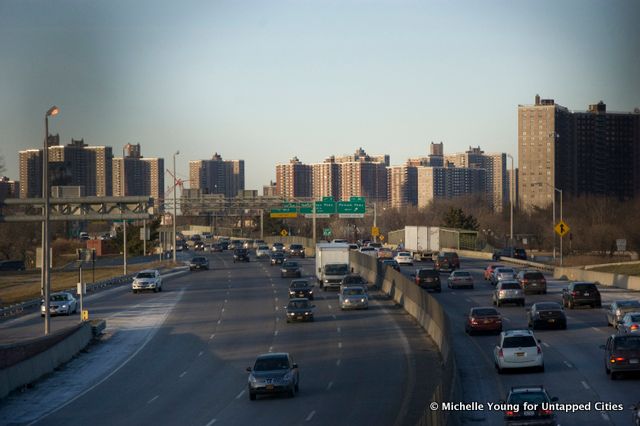
As Moses and I walked Co-Op City, we found we both shared a background in urban planning. We chatted about the urban exploration community, some of which are discussed in his new book, Hidden Cities, that came out last week. Although very humble in his book regarding his own #urbex cred, I discovered that Moses is somewhat of a myth in the community. Tweeting a photo of our adventure prompted comments on Twitter and Instagram wondering if he was back in the game. One wrote, “The ‘game’ misses you Moses. You and your pals pushed the boundaries of UE [Urban Exploration] and revealed to us what is possible.” Moses is an interesting player within the urban exploration spectrum, because he’s been indoctrinated in urban planning. Moses has worked for city-oriented non-profits and is a professor of demography at Pratt. The self-proclaimed “semi-retired” explorer claims to just need some “inspiration.” And inspiration we did find, in the form of an abandoned boat behind Co-Op City, near Goose Island.
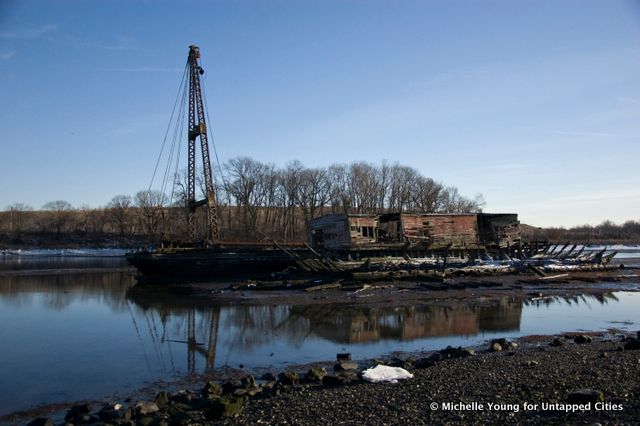
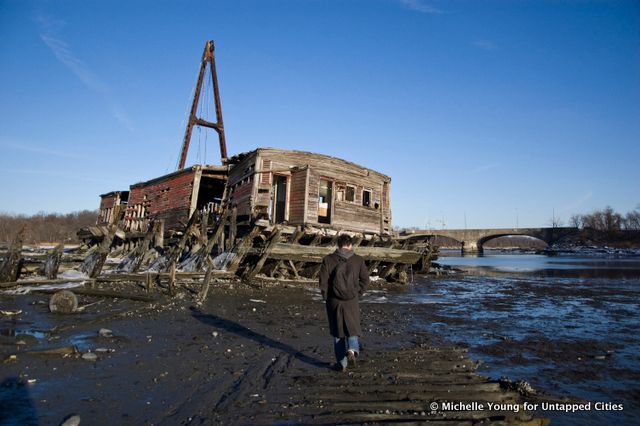
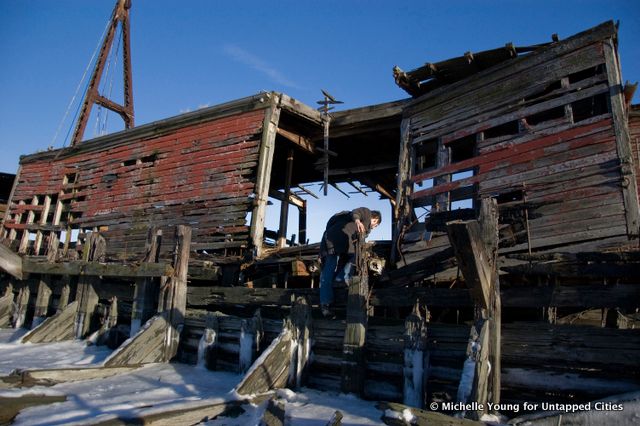
For the rest of our exploration, we put our urban planning hats on. For example, thinking about what happens to pedestrian infrastructure in areas not often traversed:
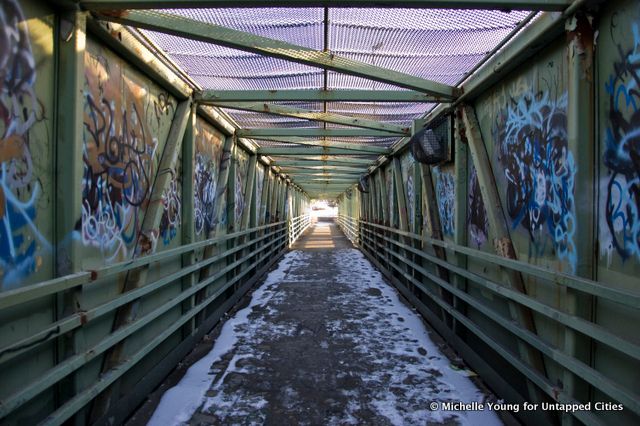
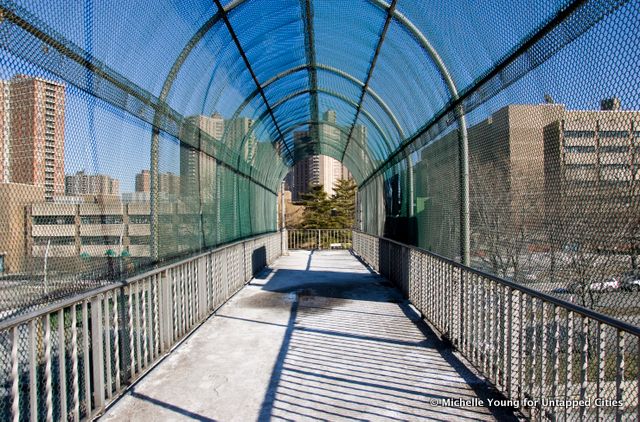
Plotting our way through the Bronx:
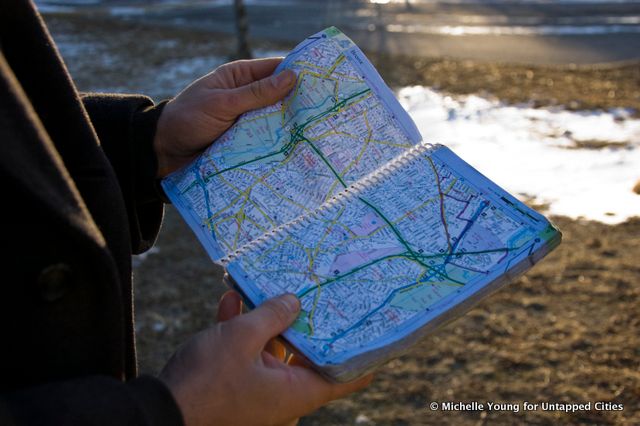
Noting the proximity between aging rail infrastructure and Co-Op City recreational facilities:
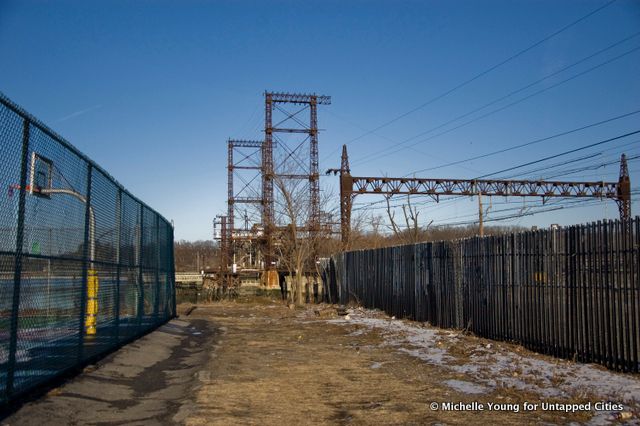
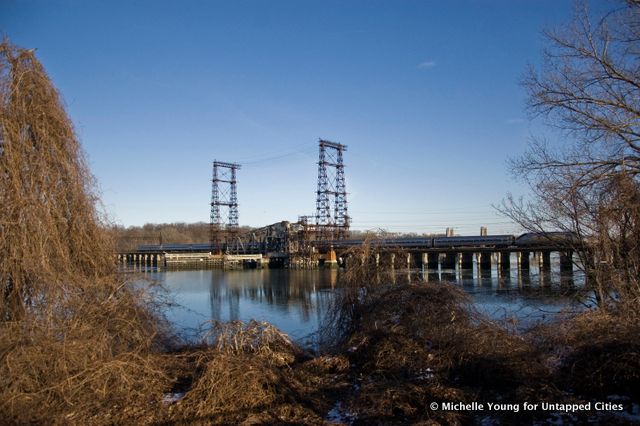
Tipped over Pathmark shopping carts are a familiar sight:
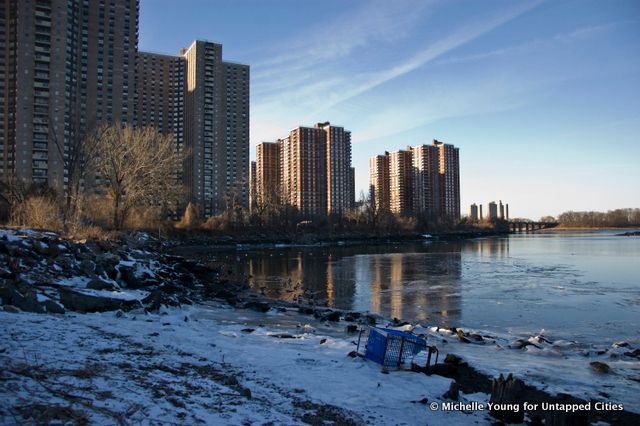
There are low rise options within Co-Op City (image below), and just outside the boundaries of the development, you can see the original single-family house typology of the Bronx.
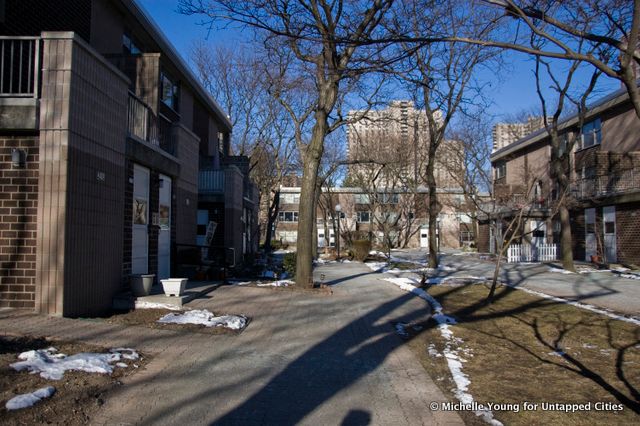
Even on a winter’s day, there is activity within Co-Op City:
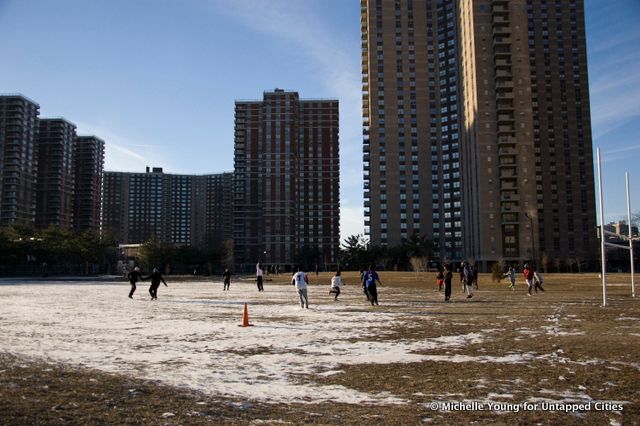
Towers in the park:
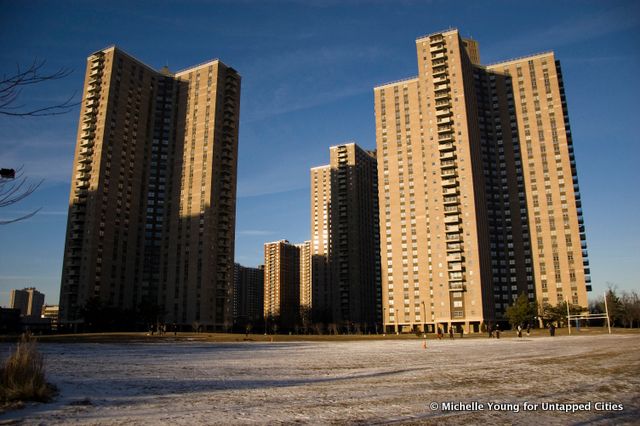
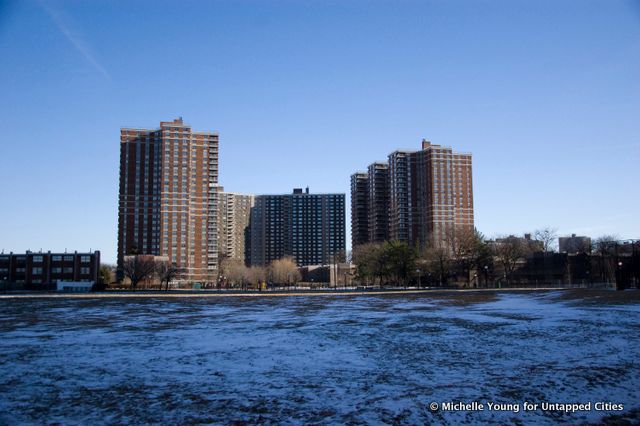
And why walk all the Census Tracts of New York City? Moses says it’s simply a great way to see the city. We couldn’t agree more.
Read about Moses Gates’ explorations into off-limits places like the top of the Chrysler Building, the Notre Dame Cathedral in France and more in his book Hidden Cities. Join him for a talk about the book at the Mid-Manhattan library tomorrow.
Subscribe to our newsletter